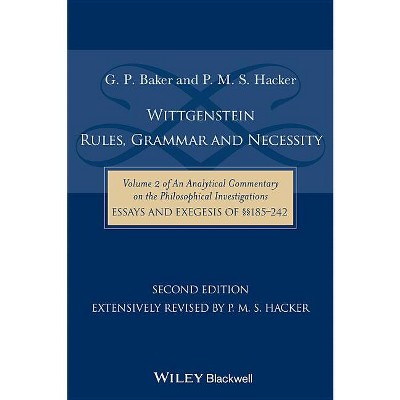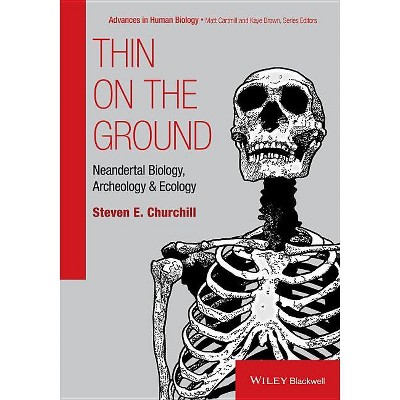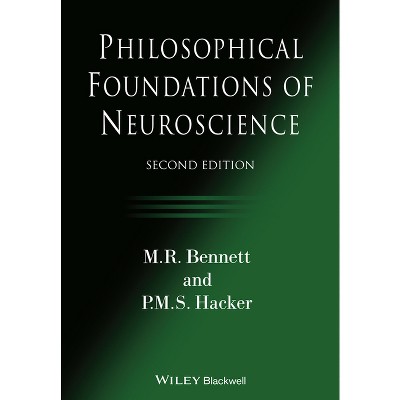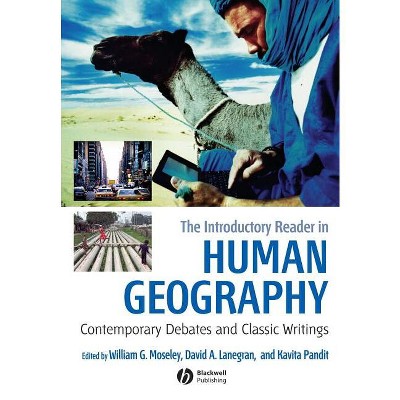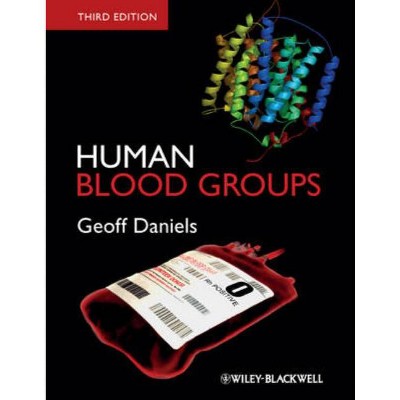About this item
Highlights
- This major study examines the most fundamental categories in terms of which we conceive of ourselves, critically surveying the concepts of substance, causation, agency, teleology, rationality, mind, body and person, and elaborating the conceptual fields in which they are embedded.
- About the Author: P. M. S. Hacker is the leading authority on the philosophy of Wittgenstein.
- 352 Pages
- Philosophy, History & Surveys
Description
Book Synopsis
This major study examines the most fundamental categories in terms of which we conceive of ourselves, critically surveying the concepts of substance, causation, agency, teleology, rationality, mind, body and person, and elaborating the conceptual fields in which they are embedded.- The culmination of 40 years of thought on the philosophy of mind and the nature of the mankind
- Written by one of the world's leading philosophers, the co-author of the monumental 4 volume Analytical Commentary on the Philosophical Investigations (Blackwell Publishing, 1980-2004)
- Uses broad categories, such as substance, causation, agency and power to examine how we think about ourselves and our nature
- Platonic and Aristotelian conceptions of human nature are sketched and contrasted
- Individual chapters clarify and provide an historical overview of a specific concept, then link the concept to ideas contained in other chapters
From the Back Cover
What distinguishes humanity from the rest of animate nature? What grounds the distinctive powers of human beings? What are the forms of explanation proper to the understanding of the exercise of these powers in action? Human beings have both a mind and a body - but what is a mind? What is it to have a body? How is a person's mind related to their body? And what is a person?This major new study, by one of the most penetrating and persistent critics of philosophical and scientific orthodoxy, returns to Aristotle in order to examine the salient categories in terms of which we think about ourselves and our nature. An overview of the concepts of substance, causation, power and agency provides the background for an investigation into teleology, rationality and explanations of behaviour in terms of reasons. This is the stage-set for the analysis of the concepts of mind, self, body and person.
This essay in philosophical anthropology ranges widely over themes in metaphysics, philosophy of mind and of action, and philosophy of biology, blending powerful philosophical analysis with a masterful grasp of the history of philosophical reflection on the topics in question.
Review Quotes
"Full of helpful distinctions and arguments which show in different ways how carefully we must proceed ... and how sensitive we must be to contexts." (Notre Dame Philosophical Reviews)
"an outstanding contribution to contemporary metaphysics and philosophical anthropology"' (Stephen Mulhall, Philosophical Quarterly)
"an amazing achievement when writing about such potentially confusing and hotly contested issues" (Duncan Richter, Metapsychology)
About the Author
P. M. S. Hacker is the leading authority on the philosophy of Wittgenstein. He is author of the four-volume Analytical Commentary on the Philosophical Investigations, the first two volumes co-authored with G. P. Baker (Blackwell, 1980-96) and of Wittgenstein's Place in Twentieth-century Analytic Philosophy (Blackwell, 1996). He has also written extensively on philosophy of language and philosophy of mind, most recently Philosophical Foundations of Neuroscience (Blackwell, 2003) and History of Cognitive Neuroscience (Wiley-Blackwell, 2008), both co-authored with M. R. Bennett. He is also co-editor (with Joachim Schulte) and co-translator of the 4th edition of Wittgenstein's Philosophical Investigations (Wiley-Blackwell, 2009).






